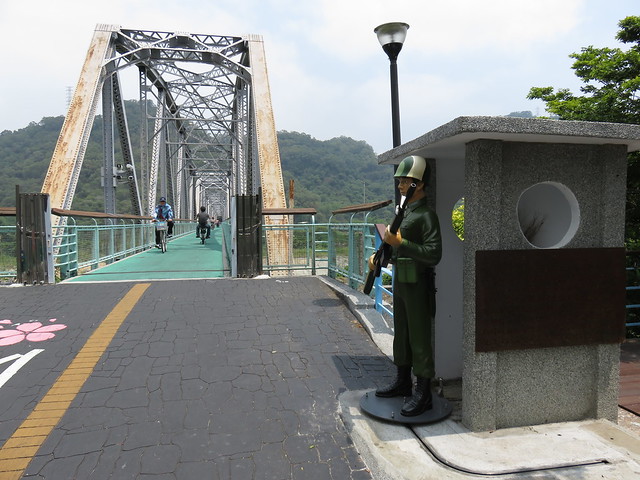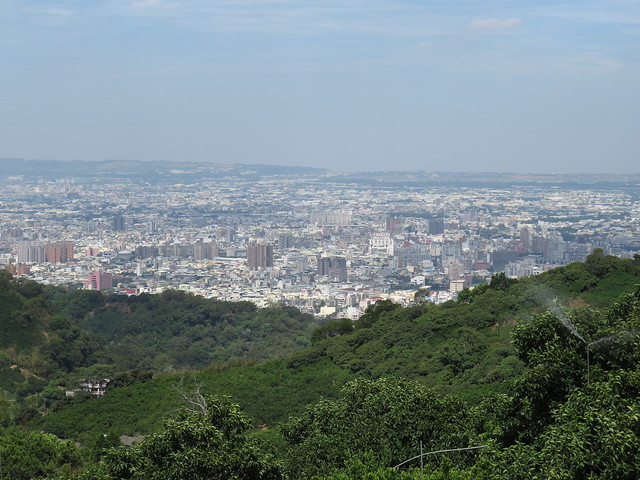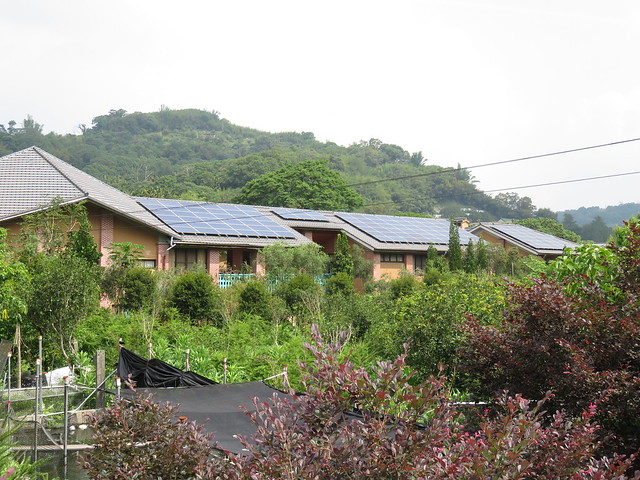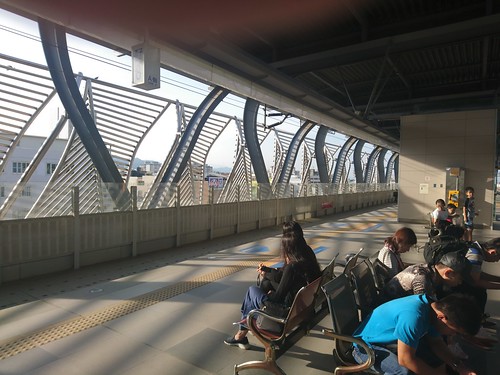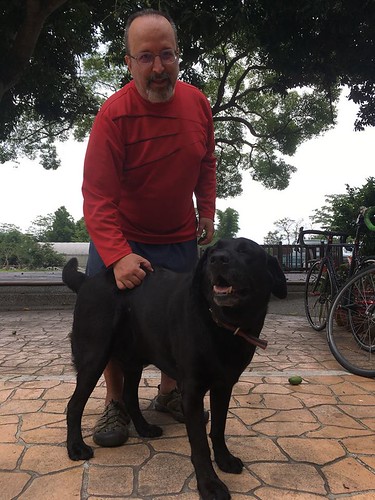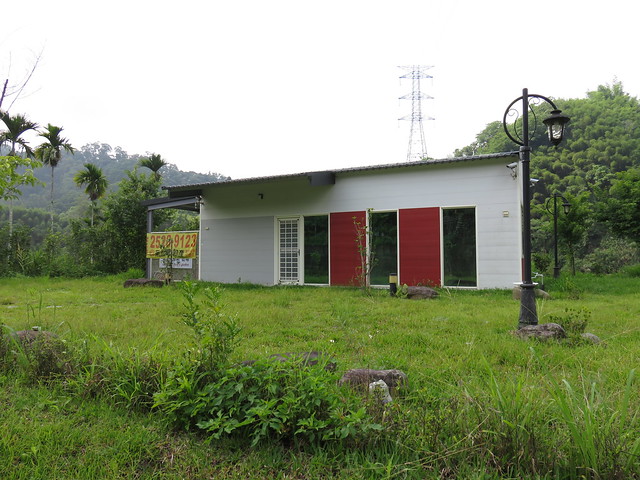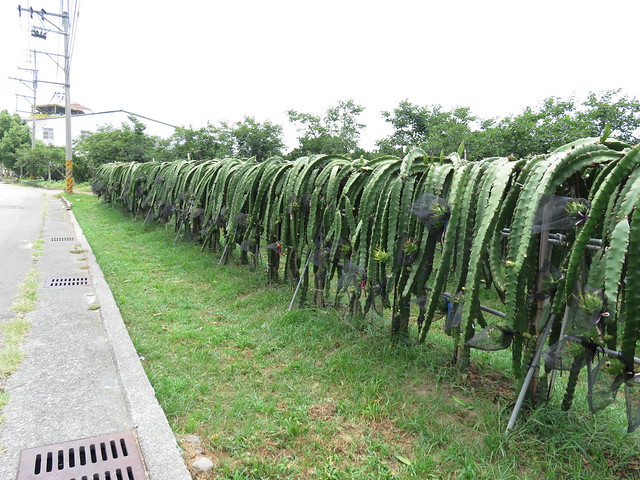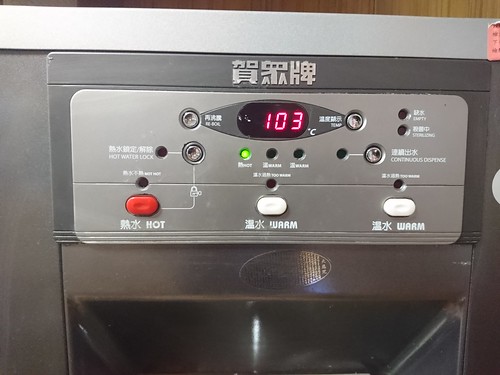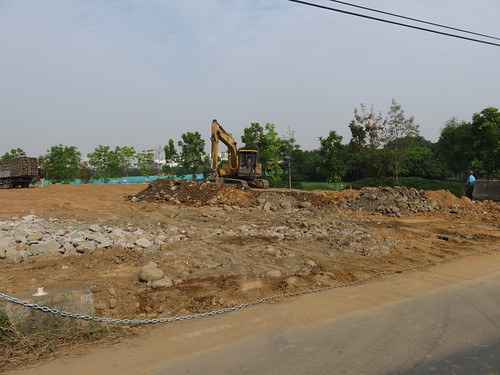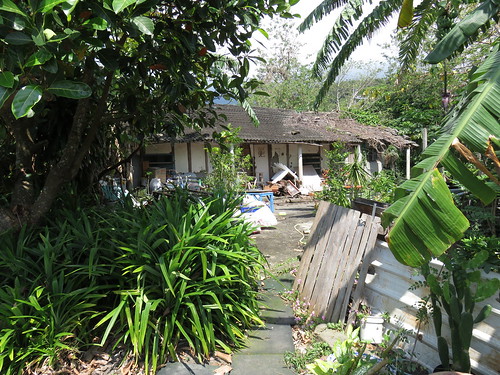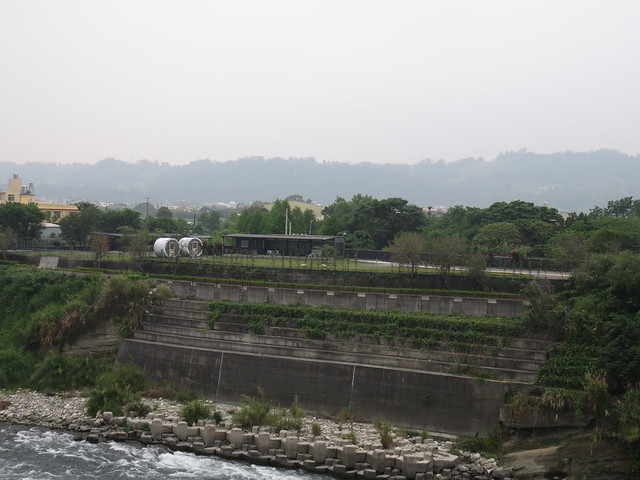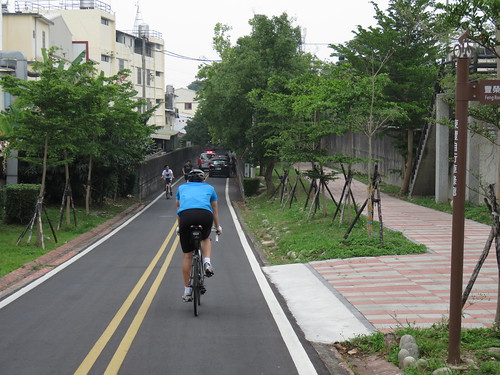The Taipei Times ran a report the other day on rising irrigation water theft driven by water rationing...
Due to the shortage, a scheme has been introduced in which farmers are supplied with irrigation water for seven consecutive days, but do not have water for the next seven days. As the first rice harvest season is about to end, irrigation water would be supplied for the last time on June 4.Irrigation water theft is old in Taiwan, of course, as old as irrigation. In Bernard Gallin's 1983 work Guests in the Dragon, on the social demography of a "Chinese" rural district in Taiwan, he remarks briefly on the routine theft of irrigation water by local residents in the Japanese era (it's a reminder of how much things have changed that as late as 1987 Hill Gates called her book on Taiwanese working class people Chinese Working-class Lives: Getting by in Taiwan. In those days you had to call Taiwan "China", now that language has largely disappeared).
The association on May 1 set up a team to patrol its irrigation sources. The team reported more than 400 cases of water theft this month in which some farmers allegedly stole water by inserting additional tubes in the middle of irrigation waterways, an anonymous association member said.
The association tends to warn people stealing water, instead of calling the police, unless they are really hostile, the member said.
The water thefts often occur in the northbound and southbound waterways flanking Wushantou Reservoir (烏山頭水庫), with the northbound waterway reaching Chiayi County’s Puzih City (朴子) and the southbound one reaching Tainan’s Sinhua District (新化), the member added.
Theft reminded me of fraud, which brought to mind this paper I had read the other day, "The Peasants’ Dilemma: Finance and Fraud Problems in Purchasing Fertilizer in Taiwan (1910–1930s)" by Kensuke Hirai in Economic Activities Under the Japanese Colonial Empire pp 115-136 (it's a translation). So I thought I'd offer another installment of my regularly irregular Paper on Parade series on this paper.
Like so many habits and practices, fertilizer use was brought to Taiwan by the Japanese. The paper observes:
In Taiwan during the late Qing dynasty, as a report from the British consul in the 1860s noted, peasants were not in the habit of purchasing fertilizers (Irsh University Area Studies Series 1971–72, p. 73). The amount of bean cake imported to Taiwan recorded in Maritime Customs statistics supports the claims of the British consul. The first time bean cake appeared in the Maritime Customs statistics was in 1880 and only a mere 270 piculs was imported. Although the import volume increased in the 1890s, it never exceeded 2000–4000 piculs (Huang, Lin and Wong 1997).To get peasants to use fertilizers, the Japanese colonial government organized farmer's associations and promoted its use among them. Though science said fertilizers worked, the peasants were distrustful because the farmers associations played the dual role of police state enforcement organizations which were response for using the police to control farming villages. Eventually the government hit on the idea of using the baojia system, which the Japanese had reinvigorated and reorganized, to transmit fertilizer information downward to the peasantry. The author notes:
The fertilizer most commonly used for rice cultivation was bean cake, which was imported from the northeastern part of China. Figure 5.1 shows the amount of fertilizer imported into Taiwan. Imports started at 10,570 piculs in 1903 and rapidly increased after 1909, reaching 1,000,000 piculs in 1916 and 1,800,000 piculs in 1920. Later, imports fell drastically in 1921 in the recession after World War I, but increased rapidly again in the latter half of the 1920s and exceeded 3,000,000 piculs in 1931.The fertilizer was initially sold by big Japanese firms who had the financial muscle to bring in high volumes, but later Taiwanese merchants entered the fray as imports became more diverse. The peasants suffered from the problem of financing the purchase of fertilizers, but they also suffered from another problem: fraud. The author writes:
The second problem in the purchase of fertilizers was the issue of fraud. It seems that the first mention of fertilizer fraud in Taiwan was in 1921 (TNK 1921, pp. 6–10). The fertilizer trade was characterized by an asymmetric balance of information . Since “it was hard for even specialists to distinguish between good and bad fertilizers (TNK 1921, p. 10),” the possibilities for fraud in the form of defective or adulterated products were high and the players “did not stop with manufacturers and suppliers but extended to amateurs secretly engaged in deception (TNK 1923, p. 13).” Furthermore, since there was no fertilizer inspection agency for the private sector in Taiwan, peasants and merchants had difficulties in assessing the quality of fertilizers that they were planning to buy (TS 1927, p. 31). Thus, there were many importers who “gained profits by secretly carrying domestically- and internationally-rejected and substandard products onto the island (TNK 1927, p. 6),” and those vendors on the island who bought from them were “only trading fertilizers conventionally, most lacking the skills to judge the quality of fertilizers, and they eventually sold them to peasants unaware that they had been tricked by unscrupulous merchants (TS 1927,p. 33).” It was, therefore, vital for the peasants to reduce this type of asymmetric information.The government responded to the pervasive fraud problem with the Fertilizer Control Act of 1927 which stipulated that vendors had to attach a guarantee to the product and provided for inspections and punishment of fraud. Though the fraud rate fell, showing it had an effect, fraud continued to exist, meaning that the system failed to resolve the problem.
The peasants attacked the problems of financing and fraud through a joint purchasing system.
The next consideration is the problem of guaranteeing the quality of the fertilizer and avoiding fraud. The agricultural associations checked the quality of fertilizers they purchased by conducting inspection . The agricultural associations set standards for successful bidders, stipulating that water content was less than 20% for bean cake, that there was more than 19% soluble phosphoric acid for superphosphate, and equal amounts of bean cake and superphosphate for compound fertilizers (TSN 1921, p. 44). Moreover, since the agricultural association conducted joint purchasing to promote the use of fertilizers, there was no incentive for the agricultural association to commit fraud. Therefore, the peasants’ costs of searching for reliable information on the quality of the fertilizer were nearly zero when they used joint purchasing. This is shown in the rate of use of joint purchasing. Figure 5.3 shows where peasants obtained their fertilizer for rice cultivation. The figure demonstrates that peasants purchased fertilizer mainly by joint purchasing and the percentage of fertilizer obtained from joint purchasing (joint purchasing usage rate) was about 70 % until 1927. As mentioned above, joint purchasing prices exceeded wholesale prices during this period. So it would seem that peasants were mainly concerned with the fertilizer quality.The situation grew complicated after WWI when speculation become common in the rice market and fertilizer merchants often acted as moneylenders. Many moneylenders lost money speculating on rice prices and couldn't make rice deliveries to the export merchants who had advanced them funds to purchase rice for export. The association of export merchants than restricted funds to moneylenders. Thus choked, the moneylenders couldn't find funds to lend to peasants. After the 1930s the industrial associations set up financial systems that also squeezed moneylenders since they offered better rates for loans to peasants.
To combat this, the moneylenders offered fertilizer in exchange for unhulled rice. Fertilizer would be "lent" in advance and repaid with unhulled rice after the harvest. The moneylenders also loaned rice for consumption for repayment with unhulled rice.
Because competition was fierce, the moneylenders did not cheat the peasants in either loan rates for fertilizer quality. To obtain good quality unhulled rice to forward to exporters and processors, the moneylenders had to provide good quality fertilizer. Most peasants trusted this system and made use of it, according to the writer.
From the point of view of Taiwan's future industrial and agricultural history, this system was the breeding ground for a peasantry with skills in financing, borrowing and repaying, exports, and other advanced economic behaviors, as well as the formation of local networks of trust and government-led associations. After the land reform of the early 1950s, many of these farmers would go on to build small factories on their land and enter global supply chains and export markets, supplying big Japanese firms (some of them firms such as Mitsui which had originally entered Taiwan's fertilizer market in the early twentieth century) for assembly for the US export market, and later directly to the US.
_______________________
[Taiwan] Don't miss the comments below! And check out my blog and its sidebars for events, links to previous posts and picture posts, and scores of links to other Taiwan blogs and forums!
